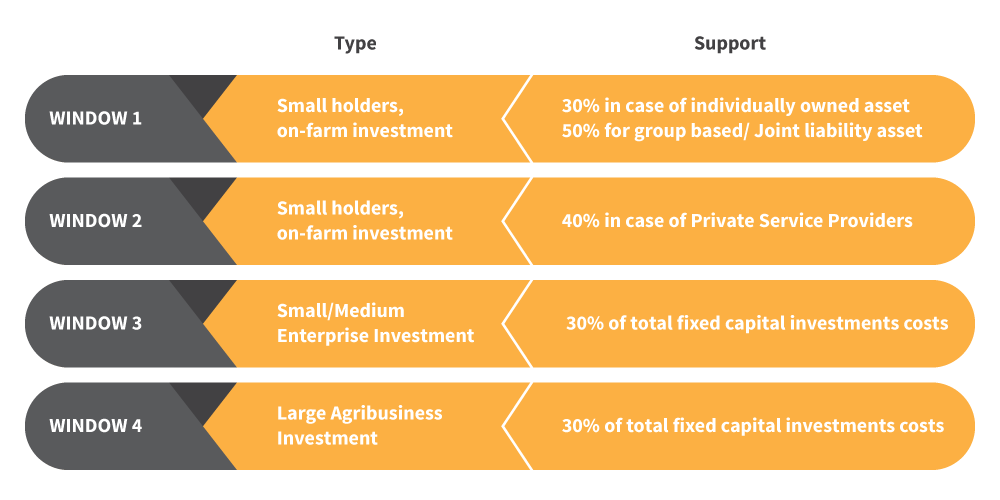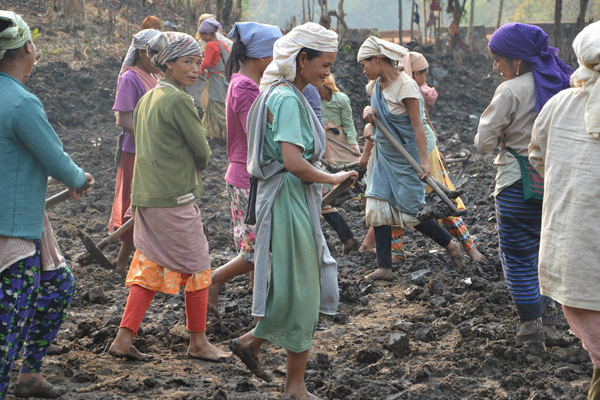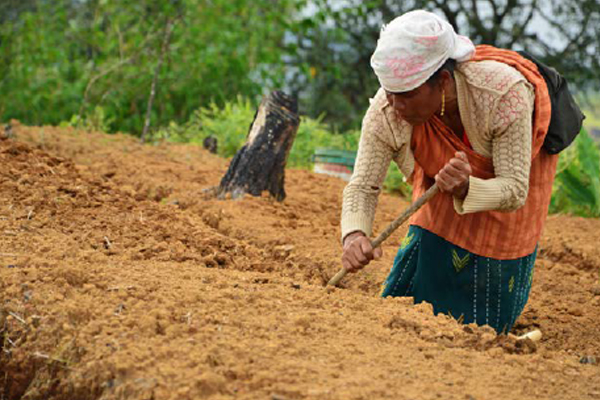Clustering of villages is necessary to determine the right structure for the collection of previously unavailable data and targeting of intervention. The project has identified 167 clusters across the 18 project blocks. Further, these have been sub-divided into 485 sub-clusters or product clusters. For each of the cluster and sub-cluster, mapping has been initiated for identified supply chain commodities to generate information on their coverage, households involved and production potential. The data generated is then authenticated via block level sensitization programmes followed by phase-wise Multi-Stakeholder Platform.
Inclusive Supply Chain and Enterprise Development Key Interventions
PROJECT CLUSTERS
MULTI-STAKEHOLDER PLATFORM
Multi-Stakeholder Platform (MSPs) are platforms where different actors (farmers, buyers, sellers, traders, regulators etc) with similar interests converge to improve the situations affecting them through shared learning, joint decision-making and collective action. MSP can serve to scale up the state’s production rates through inclusive and sustainable growth while at the same time, identifying lasting solutions to large scale issues.
MSP - I
These are one-day sensitization programmes organized at a central village of a particular cluster, where all interested farmers, traders and entrepreneurs of that cluster are invited to participate. MSP1 serves to identify current gaps and aspirations of various actors as well as potential solutions.
MSP - II
Interested youths from MSP 1 villages are engaged as village facilitators to profile their villages and organize village level sensitization programmes. They are trained to collect data and identify potential livelihood of every household. Members who share similar livelihoods are then grouped together to form a Producer Group.
MSP - III
MSP 3 addresses various issues related to production, post harvesting, value addition, transportation and logistics, infrastructure, human resource, extension services, marketing and bank linkages. Feasible intervention strategies are drawn for support under the project.
SUPPLY CHAIN FUND (SCF)
Supply Chain Fund (SCF) is a partial grant mechanism designed to stimulate private investment in small, medium and large scale enterprises that are in competitive and inclusive agricultural clusters and are part of supply chains serving wider markets, often outside the local area.
SCF provides a partial grant to private investors (farmers, producers groups, MSEs, agribusinesses or others) based on selected investment plans through a competitive process targeted specifically at the identified bottlenecks in each Supply Chain. These bottlenecks are prioritised by various Supply Chain actors during Multi-Stakeholder Platforms or other similar consultative process conducted by the project. The priority of the partial grant is on private investors who are early adopters and who invest in new planting materials, production technologies or new services and functions needed in the supply chain. The partial grant helps to absorb part of the risk associated with “first mover” investments.
Funding Windows under Supply Chain Fund

ACCESS TO MARKETS
- PLASTIC CELL TECHNOLOGY – ROADS
The Access to Markets sub-component targets the construction of 250kms of roads using state of the art Plastic Cell Technology (PCT). This technology involves pouring the concrete into honey comb shaped grids made out of small plastic cells such that when dried, the road does not become one single mass that is prone to cracks and breakage, but instead the road comprises of numerous concrete blocks that fit together like a giant puzzle. The advantage of using this technology is that if any damage is to occur, the spread would be limited only to a few cells which can individually be removed and replaced thus reducing the time and cost of maintenance. The main aim of these roads is to connect the production clusters to markets.
The construction has not only improved rural connectivity, but more importantly, it has served to link the thousands of producers and productions clusters across the state to markets and buyers within and outside the state. The infrastructure has encouraged larger volumes of trade between local producers and buyers and has helped them realise better market prices through reduced cost of transportation and enhanced linkage to buyers. As of January 2021, a total of 205kms of roads have been constructed across the state.
- COLLECTIVE MARKETING CENTRES (CMC)
The predominant current trading models of agricultural produce in Meghalaya involve produce either being sold by individual farmers to the traders in the various local markets or cluster level markets or being aggregated by the village aggregator who in turn sells to an aggregator at the cluster or mandi level. Traditionally, the aggregator at the village level is also a moneylender, who provides credit to farmers in emergencies. Usually, the aggregator provides advance credit to the farmers during the planting season, which is adjusted after lifting of the produce.
The Collective Marketing Centre (CMC), owned by the IVCS, is a primary farmgate infrastructure being set up under M-LAMP to be the node for aggregation, processing and marketing of produce in the villages and clusters under the project. The CMC is a place for marketing of agricultural produce in addition to being an input supply unit. The basic infrastructure comprises of collection space, drying area, retail area and office space. Other farm gate infrastructure like cold storage and food processing facilities can be set up later on based on the need and performance of the CMC. The project has identified locations for 90 CHCs across the State.
- To create an awareness in the process of Collective Marketing and its merits.
- To initiate the System of Aggregation and Value Addition at Village Level.
- To ensure transparent and good governance for the marketing of produce by a Collective
- To enhance the skills of the stakeholder in areas of marketing and financial linkages.


